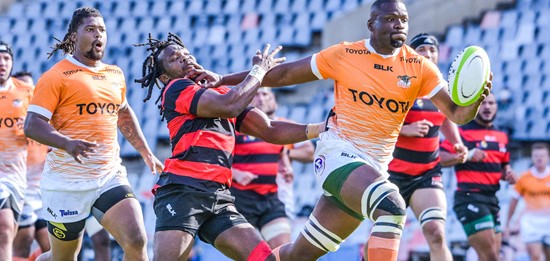In his first public engagement since being appointed to the role, Gilpin said that he was highly encouraged by the advancements born from the symposium since its inception in 2019 and believes that the 2021 edition – the first open and virtual forum – will determine important focus areas that will advance welfare for current, former and future players at all levels.
Gilpin said: “This symposium is an essential part of our work to make the game safer. Since its inception, the aim of this group has been to bring together the rugby family and outside experts to discuss, debate and ultimately pursue strategies that can advance physical and mental welfare, and most importantly, strategies that will reduce the risk of injury at all levels.
"If we are to successfully deliver on this mission, we need to hear all voices within the debate – everyone in the family has a say and a role. And we will be listening.”
While the elite game attracts the headlines as the shop window for the sport, 99 per cent of all participants are at community level. While injury rates at the community level is much lower than what it is at the elite level, Gilpin says that the sport continues to be focused on prevention and education at the community level through the continued roll-out of programmes such as the Activate Injury-prevention Initiative which is available in more than 120 nations, and the commissioning of research.
“I’m approaching my role as a fan, a parent, a former player and an administrator. I’ve seen how far the game has come over the last two decades, but we cannot stand still," he said.
"World Rugby will be unwavering in its efforts to commission, review and engage the latest science and in seeking out new expertise and technology which can advance the care of future, present and former players.”
Gilpin believes that this is an important time for the sport. With the global pandemic having disrupted sport at all levels and young people reassessing how they want to engage with sports, rugby needs to ensure that it remains relevant and attractive to participants and parents alike.
Equally, rapid advancements in both medical knowledge and technologies provide an opportunity for the sport to further advance player care and advancement.
“For those returning to the sport after its COVID-19 hiatus or those thinking about playing rugby for the first time, I want them to reap the enormous benefits the game brings," added Gilpin.
We know that rugby can change lives for the better: young and old, men and women, elite and amateur. Rugby improves fitness, mental health and overall wellbeing. It builds leadership skills. Embodies teamwork. Most importantly it builds connections at a time when we’ve all spent too much time apart.
“Medical science and knowledge is ever-evolving. Rugby will continue to evolve with it to further reduce the risk of injury, but also to further support players with mental wellbeing issues during and after their careers.
"We will consider the latest research, examine the latest technological developments that can aid concussion identification and management, and discuss how the rugby family can play a role in long-term health.
“Through the knowledge, expertise, dedication and passion in this virtual forum – medics, scientists, researchers, players, coaches, referees and laws experts – I am excited about the momentum that we can continue to build in the priority area of player welfare.
Further details about the World Rugby Player Welfare and Laws Symposium 2021 can be found here.













































